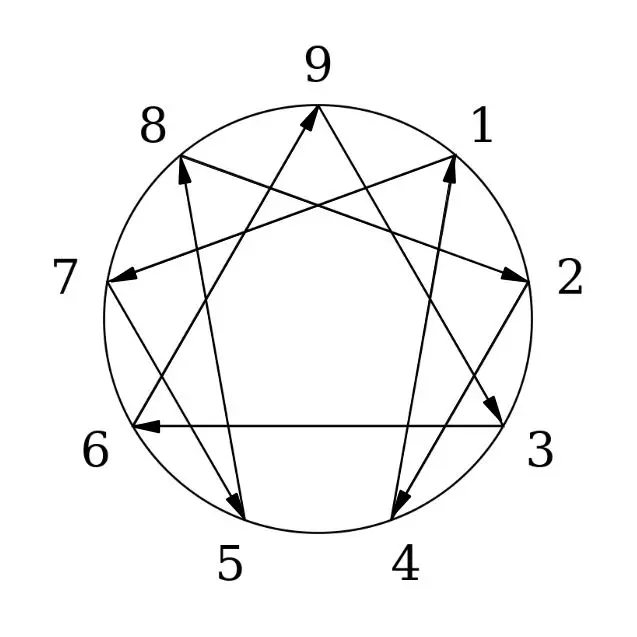Read time: 10 minutes | Key insight: Your type is found through motivation, not behavior
You've taken the personality quiz. Got your four letters. Maybe even discovered your color or animal type.
But something’s still missing.
You know what you do. But not why you do it.
That’s where the Enneagram changes everything. In the next 10 minutes, you’ll discover which of the nine types drives your deepest motivations—and finally understand the “why” behind your patterns.
No fluff. No 200-question tests. Just four proven steps to find your type.
Ready? Let’s cut through the confusion.
Step 1: Forget Everything You Know About Personality Tests
Here’s the truth:
Most personality systems are like taking a photo of your house from the outside. The Enneagram? It gives you the blueprints.
“The Enneagram doesn’t put you in a box. It shows you the box you’re already in—and how to break free.”
Why the Enneagram Actually Works
Traditional tests measure behavior.
The Enneagram reveals motivation.
Traditional tests show what you do.
The Enneagram explains why you do it.
Traditional tests categorize your actions.
The Enneagram uncovers your fears and desires.
Think about it:
Your confident friend at the party? Could be a Type 3 showcasing achievements. Or a Type 7 avoiding deep conversation. Or a Type 8 establishing dominance.
Same behavior. Completely different reasons.
That’s the power here—understanding the invisible forces that drive you.
Step 2: Find Your Emotional Home Base (This Changes Everything)
Forget complex theories.
The Enneagram is built on three core emotions. You experience all three, but one dominates your inner world.
Which one feels most familiar?
🔥 ANGER (Body Center: Types 8, 9, 1)
You know anger is your driver if:
- Your first reaction is physical (fight, freeze, or withdraw)
- You’re constantly aware of power dynamics
- Control and autonomy are non-negotiable
- Injustice makes your blood boil (or simmer)
But here’s the twist:
- Type 8s express it directly (“I’m pissed and here’s why”)
- Type 9s bury it so deep they forget it exists
- Type 1s transform it into “constructive criticism”
Ask yourself: Do you explode, implode, or redirect?
💔 SHAME (Heart Center: Types 2, 3, 4)
You know shame is your driver if:
- You’re hyperaware of how others see you
- Your worth feels tied to external validation
- You unconsciously adapt to gain approval
- Identity questions keep you up at night
But it shows up differently:
- Type 2s become indispensable (“They need me”)
- Type 3s achieve relentlessly (“I am my accomplishments”)
- Type 4s embrace uniqueness (“No one understands me”)
Ask yourself: Do you earn love, achieve it, or long for it?
😰 FEAR (Head Center: Types 5, 6, 7)
You know fear is your driver if:
- Your mind never stops analyzing
- You’re always three steps ahead (planning or worrying)
- Security feels perpetually out of reach
- You process life intellectually before emotionally
But it manifests uniquely:
- Type 5s withdraw to build competence (“Knowledge is safety”)
- Type 6s prepare for every scenario (“What if…?“)
- Type 7s chase the next high (“Keep moving, stay happy”)
Ask yourself: Do you hide, prepare, or run?
The moment of truth: Which emotion do you spend the most energy managing, avoiding, or expressing?
Step 3: Connect the Dots to Your Childhood (It All Makes Sense Now)
Your Enneagram type isn’t random.
It’s a brilliant survival strategy you developed as a kid. Not necessarily from trauma—sometimes just from being human in an imperfect world.
If You’re ANGER-Driven (8, 9, 1):
Your childhood likely included:
- Feeling powerless or overlooked
- Pressure to be “strong” or “good”
- An environment where anger was explosive or forbidden
The lesson you learned:
If You’re SHAME-Driven (2, 3, 4):
Your childhood likely included:
- Love that felt conditional
- Pressure to be a certain way
- Recognition for doing, not being
The lesson you learned:
If You’re FEAR-Driven (5, 6, 7):
Your childhood likely included:
- Unpredictability or chaos
- Too many demands or too little guidance
- Intellectual achievement valued over emotional expression
The lesson you learned:
Stop and reflect: Which childhood lesson still runs your adult life?
Step 4: Meet Your Type (The “That’s Me!” Moment)
Now for the moment of recognition.
Read these descriptions slowly. One will feel uncomfortably accurate—like someone’s been reading your diary.
🔥 The Body Types (Gut Center)
Type 8 - The Challenger
“I protect myself and others through strength”
Dead giveaways:
- You’d rather be respected than liked
- Vulnerability feels like death
- You spot bullshit from a mile away
- Small talk is torture; intensity is life
Your superpower: Protecting the innocent
Your kryptonite: Admitting you need anyone
Type 9 - The Peacemaker
“I create harmony by disappearing myself”
Dead giveaways:
- You see all perspectives (except your own)
- Conflict makes you physically uncomfortable
- You’ve forgotten what you actually want
- “I don’t mind” is your catchphrase (but you do)
Your superpower: Bringing people together
Your kryptonite: Knowing what YOU want
Type 1 - The Perfectionist
“There’s a right way to do everything”
Dead giveaways:
- You see mistakes before anything else
- Your inner critic never sleeps
- “Good enough” feels like failure
- You’re angry but call it “frustrated”
Your superpower: Making things better
Your kryptonite: Accepting imperfection
💔 The Heart Types (Feeling Center)
Type 2 - The Helper
“I’m valuable when I’m needed”
Dead giveaways:
- You know what others need before they do
- Receiving help feels wrong
- You give until you’re empty (then resent it)
- “I’m fine!” (You’re not fine)
Your superpower: Intuitive care for others
Your kryptonite: Acknowledging your own needs
Type 3 - The Achiever
“I am what I accomplish”
Dead giveaways:
- Your calendar is your bible
- Stillness feels like death
- You become whoever the room needs
- Failure isn’t an option (it’s an identity crisis)
Your superpower: Making the impossible happen
Your kryptonite: Being loved for who you are, not what you do
Type 4 - The Individualist
“Something essential is missing in me”
Dead giveaways:
- You feel emotions others don’t have names for
- Ordinary feels like death
- You’re nostalgic for experiences you’ve never had
- “No one understands” is your anthem
Your superpower: Finding beauty in pain
Your kryptonite: Accepting your inherent completeness
😰 The Head Types (Thinking Center)
Type 5 - The Investigator
“Knowledge is my fortress”
Dead giveaways:
- People exhaust you (even ones you love)
- You need to understand before you participate
- Privacy is oxygen
- Small talk is your personal hell
Your superpower: Seeing what others miss
Your kryptonite: Engaging before you’re “ready”
Type 6 - The Loyalist
“The world is unsafe and I must be prepared”
Dead giveaways:
- You spot every possible problem
- Authority is both needed and suspect
- Loyalty is everything
- Your mind plays devil’s advocate with itself
Your superpower: Protecting the group
Your kryptonite: Trusting your own judgment
Type 7 - The Enthusiast
“Life is full of possibilities I can’t miss”
Dead giveaways:
- Boredom feels like dying
- You’re planning tomorrow during today
- Negative emotions get reframed instantly
- FOMO is your middle name
Your superpower: Turning lead into gold
Your kryptonite: Sitting with discomfort
Which one made you uncomfortable? That’s probably your type.
The Secret Sauce: How Stress and Growth Confirm Your Type
Still unsure? This is the clincher.
Each type has predictable patterns when thriving or struggling. These ”connecting lines” reveal your true type.

Quick Reference: Your Stress & Growth Patterns
| Your Type | When Thriving You Become… | When Stressed You Become… |
|---|---|---|
| Type 1 | Spontaneous like a 7 | Moody like a 4 |
| Type 2 | Self-aware like a 4 | Aggressive like an 8 |
| Type 3 | Loyal like a 6 | Checked-out like a 9 |
| Type 4 | Principled like a 1 | Clingy like a 2 |
| Type 5 | Confident like an 8 | Scattered like a 7 |
| Type 6 | Calm like a 9 | Image-conscious like a 3 |
| Type 7 | Focused like a 5 | Critical like a 1 |
| Type 8 | Caring like a 2 | Withdrawn like a 5 |
| Type 9 | Decisive like a 3 | Anxious like a 6 |
The revealing question: How do you act when everything’s falling apart?
The 3 Reasons You’re Still Confused (And How to Fix Them)
Mistake #1: You’re Typing Your Behavior, Not Your Motivation
The trap: “I’m organized, so I must be a Type 1”
The truth: Type 3s organize for efficiency. Type 6s organize for security.
The fix: Ask “Why do I do this?” not “What do I do?”
Mistake #2: You’re Typing Who You Wish You Were
The trap: Identifying with your aspirational self
The truth: Your stress patterns reveal your actual type
The fix: Look at your worst day, not your best
Mistake #3: You’re Confusing Your Wing for Your Core
The trap: “I’m either a 3 or a 4.” The truth: You might be a 3 with a 4 wing. (Learn more about Enneagram wings.)
The fix: Focus on core fears first, flavoring second
Your Next Move (This Is Where Real Growth Begins)
Congratulations. You’ve just discovered something 90% of people never will:
The invisible pattern running your life.
But here’s what matters more:
- Your type isn’t your destiny—it’s your starting point
- Every type can be healthy or unhealthy
- Awareness is the first step to freedom
Three Things to Do Right Now:
Test your hypothesis: Watch yourself for 24 hours. Notice when your type’s patterns show up.
Find your growth path: Each type has specific practices for health. Get the quick overview → or explore self-development strategies by type
Join the conversation: Share your type discovery with someone close. Their reaction will confirm or challenge your self-assessment.
The Ultimate Question:
Now that you see the box you’ve been living in…
What will you do with that awareness?
P.S. Still uncertain? That’s normal. Some people take months to find their true type. The key is to keep observing your motivations, not your behaviors. The truth always reveals itself. For deeper understanding, explore how each type communicates or what happens under stress.
